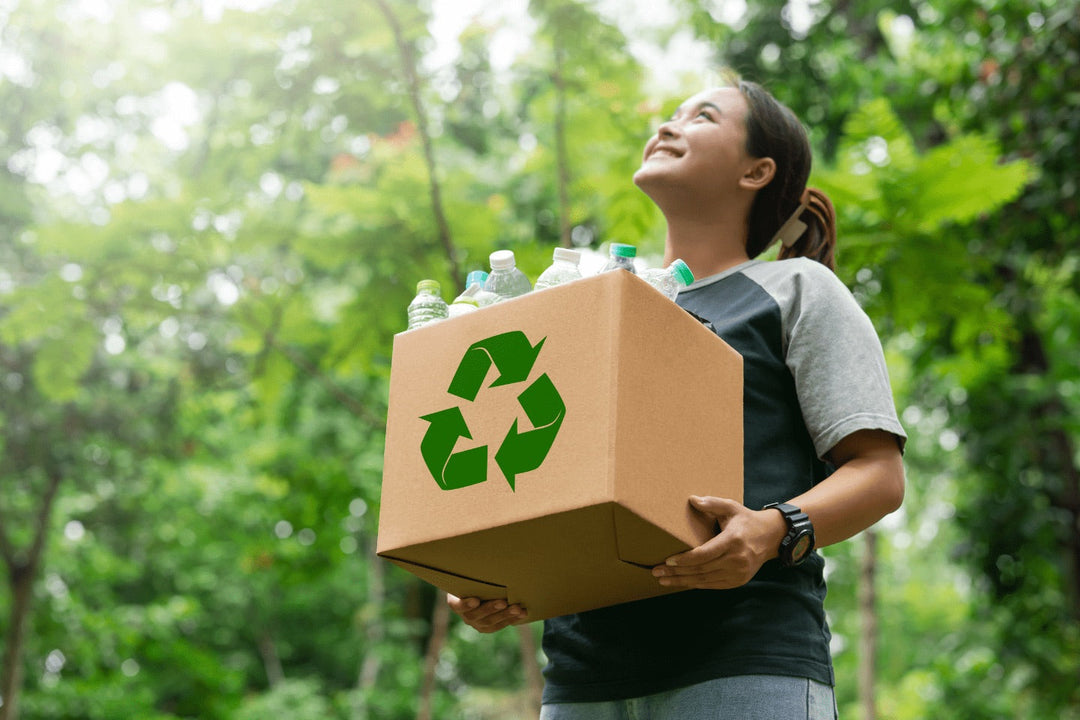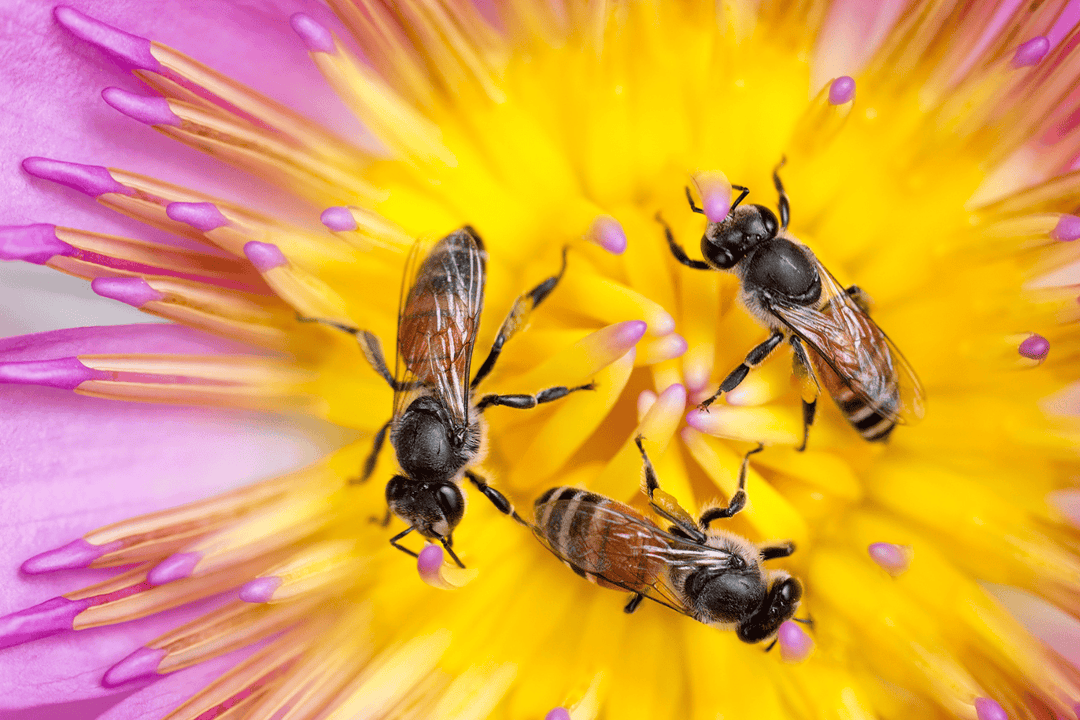Everyday Habits for a Healthier Planet: Simple Eco-Friendly Swaps for Sustainable Living

Earth Day provides the perfect opportunity to pause and reflect on the everyday habits we often overlook - habits that, collectively, leave a profound impact on our environment. It can be easy to underestimate the influence of our daily actions, but even the smallest changes can ripple out into significant environmental benefits. This Earth Day, let's explore common habits that may have a detrimental impact on our environment and how we can realistically adjust our behavior for more environmentally friendly outcomes.
Fast Fashion: The Hidden Costs of Cheap Clothing
The fashion industry may offer affordable and trendy clothes, but its environmental footprint is enormous. Fast fashion generates about 10% of global carbon emissions and is a significant consumer of water, using approximately 93 billion cubic meters annually. Additionally, synthetic clothing contributes significantly to microplastic pollution, with tiny fibers polluting our waterways each time we wash our clothes.
Instead of regularly purchasing inexpensive, low-quality clothing that quickly wears out, consider investing in fewer, high-quality pieces. Thrifting, swapping clothes with friends, and creating capsule wardrobes can substantially lower your environmental impact. Learning basic sewing skills to repair and modify clothing can also extend the life of your wardrobe, saving money and resources simultaneously.
Is Bamboo Always Better?
Often marketed as eco-friendly, bamboo products (including clothing) sometimes involve hidden environmental costs. Although bamboo grows rapidly and requires less water and pesticides than conventional cotton, certain processing methods involve toxic chemicals. Always look for sustainably sourced and certified products to ensure your bamboo choice is truly environmentally beneficial.
Here are some suggestions for certifications to look for on bamboo products:
- Forest Stewardship Council (FSC): This certification indicates that the bamboo is sourced from responsibly managed forests.
- Global Organic Textile Standard (GOTS): For bamboo textiles, GOTS certification ensures that the fabric contains a minimum of 70% organic fibers and that the processing meets stringent environmental criteria.
- OEKO-TEX Standard 100: This certification verifies that the product is free from harmful substances, ensuring safety for both consumers and the environment.
Coffee and Tea Habits: Brewing Sustainably
Many of us rely on a daily cup of coffee or tea, yet we rarely consider the environmental impact behind these comforting beverages. Single-use coffee pods, disposable cups, tea bags made with plastic fibers, and unsustainable coffee and tea farming methods contribute to landfill waste, pollution, and deforestation.
Instead, opt for brewing methods that minimize waste, such as using a French press, reusable coffee filters, or loose-leaf tea with a tea infuser. Purchasing coffee and tea from ethical sources, such as shade-grown, organic, and fair-trade certified brands, helps support sustainable farming practices and biodiversity.
Budget-Friendly Swaps:
- Invest in a reusable travel mug for your daily beverage.
- Buy bulk coffee and loose-leaf tea to save packaging and money.
- Repurpose used coffee grounds as natural fertilizer in your garden.
Paper Products and Disposable Items: The Hidden Environmental Toll
Every year, billions of trees are cut down to produce disposable paper products like paper towels, tissues, napkins, and toilet paper. Manufacturing these items also requires vast amounts of water and energy, generating significant greenhouse gas emissions.
To lessen this impact, consider switching to reusable cloth napkins, kitchen towels, and handkerchiefs. When purchasing toilet paper, look for brands made from recycled paper or bamboo from sustainably managed forests. By transitioning to reusable and eco-conscious options, you not only reduce your environmental footprint but also save money over time.
Eco-Friendly Tips:
- Keep a stack of washable cloth towels handy in your kitchen.
- Choose recycled paper products when reusables aren't feasible.
- Recycle paper products whenever possible to support circular economy practices.
Grocery Shopping: Small Choices with Big Consequences
Our grocery shopping habits have a direct impact on plastic pollution, food waste, and carbon emissions due to transportation and refrigeration. Pre-packaged foods often involve excessive plastic packaging, and imported produce contributes significantly to greenhouse gas emissions.
Instead, support local farmers and markets by purchasing locally grown, seasonal produce, and bringing your own reusable bags. Buying in bulk reduces packaging waste and can be budget-friendly, especially for grains, legumes, and snacks. Making a shopping list can help prevent impulse buys, ultimately reducing food waste at home.
Practical Grocery Tips:
- Frequent local farmers' markets or join a Community Supported Agriculture (CSA) program.
- Purchase unpackaged, bulk foods and store them in reusable containers at home.
- Bring your own produce bags made from cloth or recycled materials.
Food Waste: An Overlooked Crisis
One-third of all food produced globally ends up wasted. If food waste were a country, it would be the third-largest emitter of greenhouse gases after the U.S. and China. When food decomposes in landfills, it releases methane—a greenhouse gas far more potent than carbon dioxide. Additionally, wasted food means wasted water, labor, and energy.
To reduce food waste at home, begin by planning meals more carefully. Check your pantry and refrigerator before shopping to avoid purchasing unnecessary items. Store your food correctly—herbs in jars of water, vegetables in breathable cloth bags—to prolong freshness. Learning how to compost food scraps not only minimizes landfill waste but enriches your garden, creating a positive cycle of sustainability right at home.
Quick Tips to Cut Food Waste:
- Freeze leftovers or surplus produce.
- Clearly label food containers with dates.
- Understand and correctly interpret food labeling dates to avoid unnecessary disposal.
Single-Use Plastics: A Persistent Problem
Globally, over 400 million tons of plastic are produced annually, and an overwhelming 91% is never recycled. Most of this plastic accumulates in landfills and oceans, harming wildlife and contaminating ecosystems. Single-use plastics—items designed to be used once and discarded, such as straws, water bottles, and packaging—represent the most visible part of this environmental crisis.
Make simple swaps to reduce your reliance on plastics. Carry a reusable water bottle, use cloth grocery bags, choose reusable utensils, and opt for glass or metal storage containers. These small changes can dramatically decrease your plastic footprint. For budget-friendly options, repurpose containers you already have at home, like mason jars for storage or old cotton t-shirts turned into reusable grocery bags.
Overconsumption: Rethinking "More Is Better"
Consumerism significantly drives environmental degradation. Every new product requires resources for production, packaging, and transportation, all contributing to pollution, waste, and carbon emissions. The idea that "more is better" often leads to unnecessary purchasing and clutter, negatively impacting both our environment and mental well-being.
A practical alternative is adopting minimalism—not necessarily in an extreme form, but simply being intentional about purchases. Before buying something new, consider if you genuinely need it, and explore if you can borrow, rent, or buy it second-hand instead. This habit not only reduces waste but often saves money, creates less clutter, and brings greater satisfaction from thoughtfully chosen items.
Transportation Choices: Greener Ways to Get Around
Transportation significantly contributes to greenhouse gas emissions. Short car trips, frequent driving, and unnecessary flights all add up. Whenever possible, walking, biking, or using public transportation can substantially reduce your environmental impact. Even small adjustments like carpooling, consolidating errands into fewer trips, or choosing virtual meetings over travel can make a notable difference.
Everyday Water and Energy Habits: Small Changes, Big Impact
Daily water and energy consumption patterns play crucial roles in environmental health. Simple routines such as long showers, excessive laundry cycles, or leaving lights on unnecessarily increase your carbon and water footprints. Shortening showers by just two minutes can save thousands of gallons of water per year, while switching to energy-efficient appliances and LED bulbs significantly reduces energy consumption.
- Easy Energy and Water-Saving Habits:
- Turn off water when brushing your teeth.
- Air-dry clothes instead of using the dryer.
- Install low-flow fixtures in showers and sinks.
Personal Electronics and E-Waste: Digital Detox for the Environment
The frequent upgrading and disposal of personal electronics generate enormous amounts of electronic waste (e-waste), one of the fastest-growing waste streams globally. Toxic substances from discarded electronics can pollute water sources and harm ecosystems, while manufacturing new devices consumes significant resources and energy.
Before upgrading your electronics, consider repairing existing devices or buying refurbished products. Properly recycle electronic waste through certified e-waste recycling facilities to ensure hazardous materials are managed safely. Reducing unnecessary purchases of new technology can significantly minimize your environmental impact.
Practical Suggestions:
- Hold onto your devices longer; consider repairs and upgrades before replacement.
- Donate working electronics to charities or sell them second-hand.
- Research e-waste recycling options in your area for safe disposal.
Digital Consumption: Invisible but Real Impact
Digital consumption is another facet of e-waste, although less visible, and has real compounding environmental consequences. Data centers powering streaming services, cloud storage, and social media platforms consume enormous amounts of energy. Being mindful about your digital habits—such as reducing unnecessary video streaming, regularly deleting old emails, and responsibly recycling e-waste—can collectively lower your carbon footprint.
Personal Care and Cleaning Products: Chemical Awareness
Many conventional cleaning and personal care products contain harmful chemicals, posing risks to environmental and human health. These chemicals often pollute waterways, negatively affecting wildlife and ecosystems. Transitioning to eco-friendly products or homemade alternatives using vinegar, baking soda, and essential oils can be effective, safer, and cheaper in the long run.
Household Cleaning Habits: Green Clean for a Healthier Planet
Many household cleaning products contain harmful chemicals that negatively affect waterways and wildlife, contributing to air and water pollution. Additionally, disposable cleaning products like single-use wipes, mop pads, and disposable dusters generate unnecessary landfill waste.
Switching to eco-friendly cleaning products or creating homemade solutions using natural ingredients like vinegar, baking soda, and lemon juice can significantly reduce environmental harm. Opt for reusable cleaning tools, such as washable cloth rags, microfiber towels, and refillable spray bottles to further minimize waste.
Eco-Cleaning Tips:
- Make your own multipurpose cleaner with vinegar, water, and essential oils.
- Use baking soda and lemon juice for tougher cleaning jobs instead of harsh chemical agents.
- Replace disposable cleaning wipes with reusable cloths or microfiber towels that can be easily washed and reused.
Planting Trees: A Simple Action with Lasting Impact
One of the most direct ways to positively influence the planet is planting trees. Trees absorb carbon dioxide, reduce erosion, improve air quality, and provide habitats for countless species. Supporting businesses and organizations involved in reforestation, such as Bold Botanica’s partnership with One Tree Planted, allows you to effortlessly contribute to global reforestation efforts. Even planting just one tree or supporting tree-planting initiatives can significantly contribute to a healthier planet.
Making Change Together
This Earth Day, recognize the power of your daily habits. Each change, big or small, contributes to a healthier planet. By consciously adjusting our routines, supporting sustainable practices, and staying informed, we foster collective action towards environmental sustainability. Together, our daily habits can truly make a lasting impact.

Jana Taylor is an Iowa native and seasoned copy writer, content creator and designer, specializing in marketing and graphic design since 2015. In her spare time, she volunteers in her community, loves to garden and is an avid travel enthusiast.
Sources
https://earth.org/fast-fashions-detrimental-effect-on-the-environment/
https://www.unep.org/news-and-stories/story/environmental-costs-fast-fashion
https://www.biologicaldiversity.org/programs/population_and_sustainability/sustainability/live_more_sustainably.html
https://www.nature.org/en-us/about-us/where-we-work/united-states/delaware/stories-in-delaware/delaware-eight-ways-to-reduce-waste/
https://www.seriouseats.com/how-to-reduce-single-use-plastic-in-your-kitchen-8767023
https://news.stanford.edu/stories/2024/01/eight-simple-meaningful-eco-friendly-actions-can-incorporate-life
https://www.ft.com/content/18120967-5639-41d8-8dd0-31e735648661
https://theearthlingco.com/blogs/news/sustainable-practices-at-home
https://cfda.com/resources/materials/detail/bamboo
https://onetreeplanted.org/blogs/stories/how-to-reduce-waste






